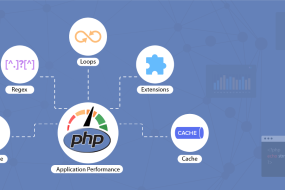
In today’s digital age, where change is the only constant, businesses and technology are evolving at an unprecedented pace. Scalability, once a buzzword in the tech world, has now become the driving force behind innovation, productivity, and competitiveness. In this blog, we delve deep into the scalability revolution, exploring its significance, key components, and how it’s reshaping industries across the globe.
The Essence of Scalability
At its core, scalability refers to the ability of a system, application, or organization to handle increasing workloads without compromising performance. It’s like a well-designed highway that can smoothly accommodate more traffic as the city grows. In the digital realm, this means your systems can seamlessly grow as your user base and data volume increase.
The Vital Role of Scalability in Modern Business
In an era where digital presence is paramount, businesses need to be nimble. Scalability empowers organizations to respond to market demands rapidly. Whether you’re a startup or a Fortune 500 company, being able to scale your operations efficiently is the key to sustainable growth.
Scaling Hardware and Infrastructure
Hardware Upgrades: Scalability begins with having the right hardware in place. The ability to upgrade servers, storage, and network infrastructure is crucial for accommodating increased workloads.
Cloud Computing: Cloud services provide a scalable solution by offering on-demand resources. This allows businesses to quickly adjust to changing needs without heavy upfront investments.
The Scalability of Software
Microservices: Breaking down software into smaller, independent modules (microservices) enables individual components to be scaled independently.
Elasticity: Elastic computing allows for automatic resource allocation based on demand, ensuring optimal performance.
Scalability in E-commerce
E-commerce platforms witness varying traffic patterns, especially during peak seasons. Scalability is their lifeline to deliver a seamless shopping experience to customers.
Benefits of Scalability in E-commerce
Enhanced User Experience: A scalable platform can handle increased traffic loads, reducing page load times and ensuring a smooth shopping experience.
Cost Efficiency: Scaling resources when needed prevents overprovisioning, saving on infrastructure costs.
High Availability: Redundancy in scalable systems ensures uptime and minimizes downtime risks.
Scalability in Cloud Computing
Cloud computing epitomizes scalability, offering a wide array of services that can be tailored to an organization’s unique requirements.
Key Components of Scalable Cloud Services
Virtual Machines: VMs can be quickly deployed or removed to match demand.
Load Balancers: Distribute incoming traffic across multiple servers to ensure consistent performance.
Serverless Computing: Eliminates the need to provision and manage servers, allowing for cost-effective scaling.
The Future of Scalability
As technology continues to advance, scalability is poised for even greater importance. With the rise of IoT, edge computing, and 5G, the need for scalable solutions will only grow.
Final Words
The scalability revolution is rewriting the rules of technology, enabling businesses to dream bigger, reach farther, and serve better. To stay competitive, it’s imperative to embrace scalability as a fundamental tenet of your digital strategy. As you scale, your business can thrive.
Commonly Asked Questions
1. What are the key challenges in implementing scalability?
Embracing scalability comes with its own set of challenges, such as selecting the right technology stack, ensuring data consistency, and optimizing for performance. However, these challenges can be overcome with careful planning and the right expertise.
2. How does scalability impact website performance?
Scalability is directly proportional to website performance. By ensuring your website can handle increasing traffic and data loads, you provide a better user experience and reduce the risk of downtime.
3. What role does cloud computing play in scalability?
Cloud computing is a scalable solution that offers flexibility, cost-efficiency, and reliability. It allows businesses to scale their operations seamlessly without the need for heavy infrastructure investments.
4. Can scalability be retrofitted into existing systems?
Yes, scalability can be integrated into existing systems through various strategies, such as microservices architecture, load balancing, and cloud adoption. It’s a wise investment for future-proofing your business.
5. How can businesses plan for scalability in their digital strategy?
To plan for scalability, businesses should assess their current and potential future needs, invest in the right infrastructure, and adopt best practices for software development and maintenance.
Advertisement







